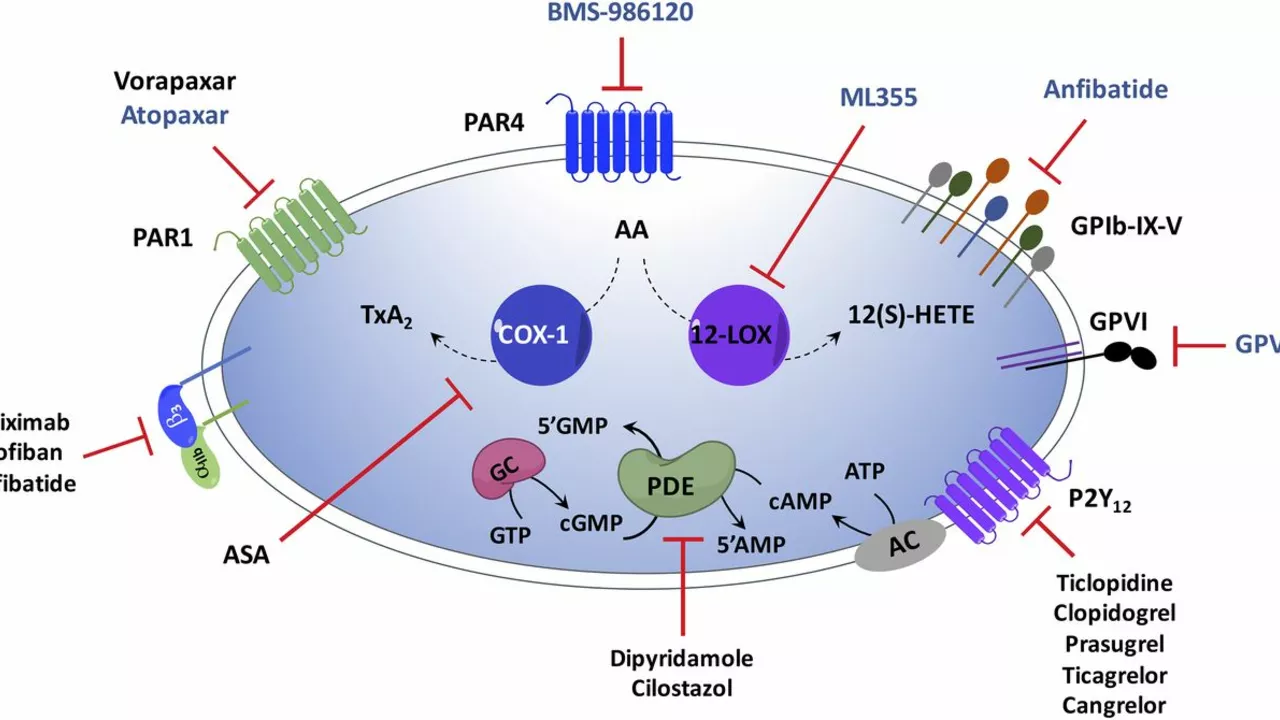Antiplatelet Therapy: How It Works, When It's Needed, and What to Expect
Ever wondered why doctors put so much focus on antiplatelet therapy after a heart attack or stroke? It all comes down to your blood’s tendency to form clots. When those clots show up in the wrong place—like your arteries—they can cause real trouble. That's where antiplatelet meds come into play.
So what actually is antiplatelet therapy? In plain language, these are meds that help stop your platelets—tiny cells in your blood—from sticking together to form clots. Sound simple? It is. Common names you might recognize are aspirin, clopidogrel (Plavix), and ticagrelor. Each one works a bit differently, so doctors pick the right match based on your health history and risks.
Why would someone need these meds? The most common reasons are heart attacks, strokes, stents in the arteries, or high risk for clotting. If you have blocked arteries or already had a heart event, your doctor probably wants your blood as smooth-flowing as possible. That means less chance for clots to gum things up again.
How does antiplatelet therapy fit into daily life? The biggest challenge is finding the balance: you want your blood thin enough to avoid clots, but not so thin that you’re bruising easily or risking major bleeds. That’s why it’s super important to let dentists and doctors know you’re on these meds before any surgery or dental work. A simple tooth extraction could get messy if your blood won’t clot.
What if you miss a dose? Unlike some medications, missing your antiplatelet pill can seriously raise your risk for new clots. Stick to your schedule—set phone reminders, use a pill organizer, whatever it takes. If you do miss one, don’t double up unless your pharmacy or doctor says it’s okay. Too much of a blood thinner can swing things in the wrong direction fast.
What about side effects? The most common is easier bruising or minor bleeding, like nosebleeds or gum bleeding. Rarely, some people notice stomach upset, especially with aspirin. Serious bleeding—think black stools or vomiting blood—means you should call your doctor right away. Be honest about everything you notice; your provider can often adjust things fast so they keep you safe without extra risk.
Mixing antiplatelet meds with other drugs? You’ve got to check for interactions. Some drugs, like ibuprofen, can ramp up the risk for stomach bleeds. Always talk over new prescriptions or supplements with your pharmacist—they’ve seen all the combinations and can spot potential issues before they start.
Wondering if you can buy these meds online or if there’s a cheaper generic? Many antiplatelet meds are available as generics, and pharmacies can help match your budget to what’s truly safe and effective. Don’t trust sketchy online sources—only use certified pharmacies you can verify.
Antiplatelet therapy can be lifesaving, but it’s not a set-and-forget solution. It needs regular follow-up and honest conversations with your doctor. If your health changes—like you get stomach ulcers, new allergies, or start another blood thinner—keep everyone in the loop. Managing these meds right means fewer complications, less worry, and better long-term results.
Understanding Ticlopidine Resistance and Its Implications
In my recent research, I've come across the concept of Ticlopidine resistance and its significant implications. Ticlopidine is an antiplatelet medication used to prevent blood clots, but some patients develop resistance to it, which can be quite concerning. This resistance may lead to an increased risk of dangerous clotting events such as strokes or heart attacks. It's essential to understand the factors contributing to this resistance, including genetic factors, drug interactions, and underlying health conditions. By increasing our understanding, we can work towards developing better treatment strategies and managing the risks associated with Ticlopidine resistance.
